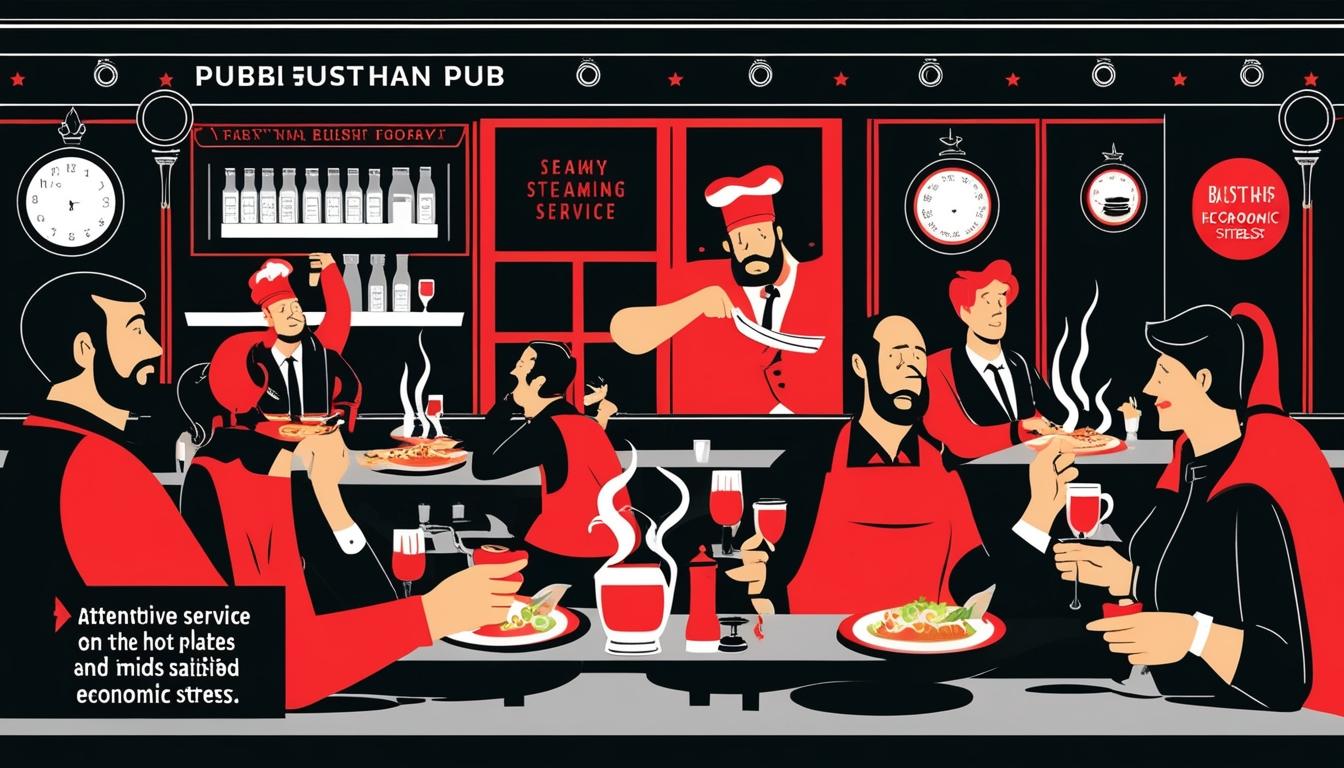As the hospitality industry navigates the complexities of the cost of living crisis, a recent report from Scottish technology firm Zonal has highlighted that the year 2025 will require pubs, bars, and restaurants to concentrate on delivering the core elements of customer service. Released last month, the research indicates that consumer expectations remain high even amid financial constraints.
The report reveals that 65% of respondents still consider dining out to be a crucial part of their social lives, while 64% believe that hospitality venues play a vital role in their local communities. Nonetheless, over half (54%) of consumers reported being ‘severely’ or ‘moderately’ affected by rising living costs. The research pinpointed two predominant issues in customer satisfaction: long waiting times for food and beverages and the undesirable experience of receiving cold meals.
Karl Chessell from research firm CGA by NIQ, which collaborated with Zonal on the study, stated, “At the end of another challenging but rewarding year for hospitality, it’s clear that delivering the fundamentals of hospitality – great food, drink, service and value – are more important than ever.” He reiterated that consumer expectations have heightened, and operators are under pressure to meet these standards while dealing with ongoing financial constraints. "Poor experiences aren’t easily forgiven, and small issues quickly add up to major frustrations. If consumers don’t like what they get, they know they have plenty of other places to go," Chessell added.
Looking ahead, the industry faces multiple hurdles beyond changing consumer expectations. The recently announced Scottish Budget offers little relief, as many hospitality operators found themselves ineligible for the rates relief proposed by Finance Minister Shona Robison. Circling back to the on-ground reality, Nic Wood, director of independent operator Signature Group, commented on the continuing profitability struggles faced by the sector. He expressed concern over the increasing operational costs linked to tax and labour, stating, “Each year, we drive turnover, and every year, we make less profit than the year before due to the cost pressures and factors out of our control.”
Wood further warned against the notion of passing costs onto consumers, emphasising that they too have their limits, saying, “They too have a ‘walk-away point’.” He called for urgent targeted support from both the UK and Scottish governments to ensure the sustainability of the hospitality sector and protect jobs within it. “Without a commitment to aid our industry, the dream of profitability in 2025 will remain just that – a dream,” he concluded.
The insights from this research underline the delicate balance that hospitality operators must manage as they strive to meet growing consumer demands while navigating a challenging economic landscape. As the industry gears up for another year, the emphasis remains on mastering the fundamentals to retain customer loyalty amid shifting financial conditions.
Source: Noah Wire Services
